
Press Freedom is at its worst state in South Sudan
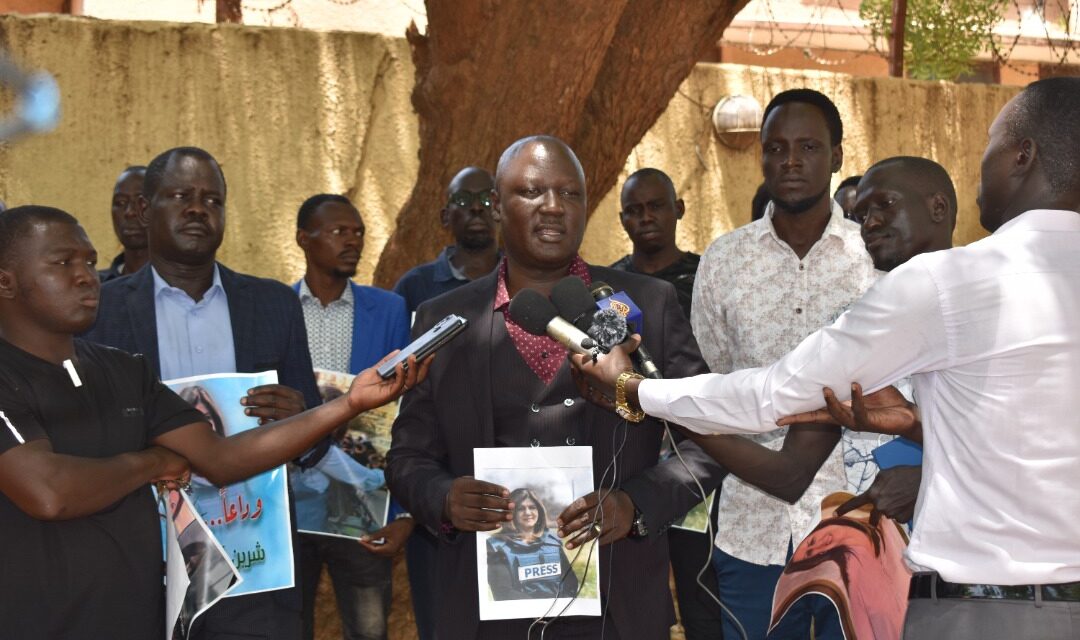
Oyet Patrick, Chairperson of the Union of Journalists of South Sudan
As the world commemorated World Press Freedom Day on Wednesday last week, we – in the media – recounted and documented atrocities against journalists and media practitioners since last year.
Most of the violence ranged from harassment, arbitrary arrests, and detainment of journalists following coverage or during coverage of events involving the country’s top leaders.
Earlier this year the Committee to Protect Journalists reported that agents with the National Security Service detained six journalists with the state-run South Sudan Broadcasting Corporation, quoting multiple media reports and three people familiar with the arrests who spoke to CPJ on condition of anonymity, citing fear of retaliation.
The journalists were under investigation for allegedly leaking a video clip widely circulated on social media in December, last year which appeared to show President, Salva Kiir suffering from an unidentified health condition, although SSBC did not air that footage.
“Authorities’ arrests of six employees of the South Sudan Broadcasting Corporation matches a pattern of security personnel resorting to arbitrary detention whenever officials deem coverage unfavorable,” said CPJ’s sub-Saharan Africa representative, Muthoki Mumo. “Authorities should unconditionally release these six SSBC employees and ensure that they can work without further intimidation or threat of arrest.”
Those who were detained are control room director Joval Tombe, camera operator and technician Victor Lado, camera operators Joseph Oliver and Jacob Benjamin, camera operator and technician Mustafa Osman, and control room technician Cherbek Ruben, according to the media reports and the people who spoke to CPJ.
It wasn’t long before broadcast journalist Garang John was arrested and detained by National Security officials.
Although these journalists were released by May 3, 2023, such behavior shows how the government of South Sudan is trying to muzzle the media using its powerful agents in the National Security Service to censor the media and limit the crucial work of journalists in the country.
Several media practitioners and civil rights organizations in South Sudan have since called out the government and security agencies for threatening, intimidating and detaining journalists.
Also Read: African journalists convene in Kenya to address decade-long media challenges
Some of these journalists like Woja Emmanuel, one of The Insider’s co-founders, and activists like Okay Africa Foundation’s former Executive Director, Wani Michael and Rajab Mohandis, the Executive Director of the Organization for Responsive Governance have been forced into exile for being critical of the government.
Sadly, That’s how determined the government is as far as suppressing press freedom in South Sudan is concerned. Shamelessly, the government still has the guts and effort to deny what anyone can see and hear.
On Wednesday this week, South Sudan’s government spokesperson Michael Makui Lueth insisted on VOA’s South Sudan in Focus program that there was press freedom in the country.
In the same program, several senior editors and media house managers reported their ordeal dealing with government officials denying journalists access to information.
Suzanne Gitau, the chief editor of Classic FM says one of our reporters was assaulted by a bodyguard of a high-profile leader while on assignment.
Many journalists across South Sudan have experienced a similar ordeal, including myself while covering parliament in February 2022 along with six other colleagues, let alone being asked to report for questioning at the Media Authority premises after covering a story the authorities deem sensitive.
Such is a journalist’s daily routine each day they report to work and each day they do sensitive stories.
We literally risk our lives and that of our families each day we cover stories the government doesn’t want to be covered or when we host topics the government considers too sensitive to be discussed in the public’s sphere.
Press Freedom is still limited. Intimidation, life threats, and censorship are some major challenges to press freedom in the country.
To make all the efforts worthwhile, we as a country, need to shaping a Future of Rights with Freedom of expression as a driver for all other human rights, signifying the enabling element of freedom of expression to enjoy and protect all other human rights.

















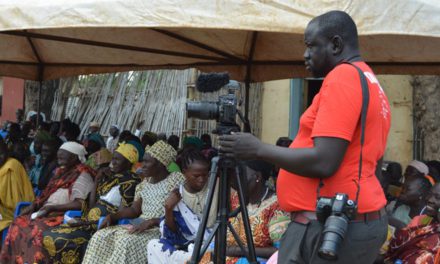
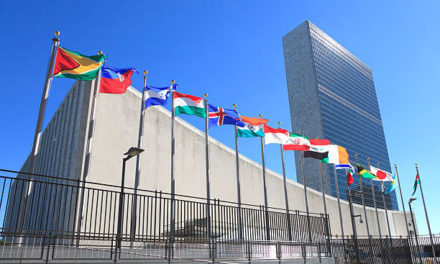
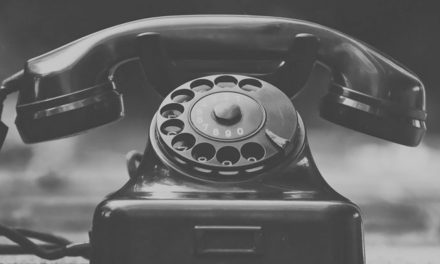
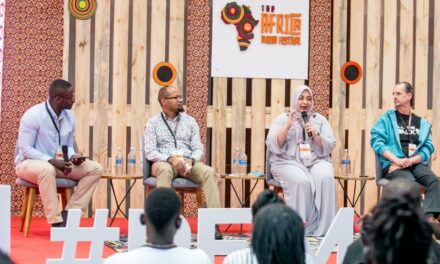
Recent Comments